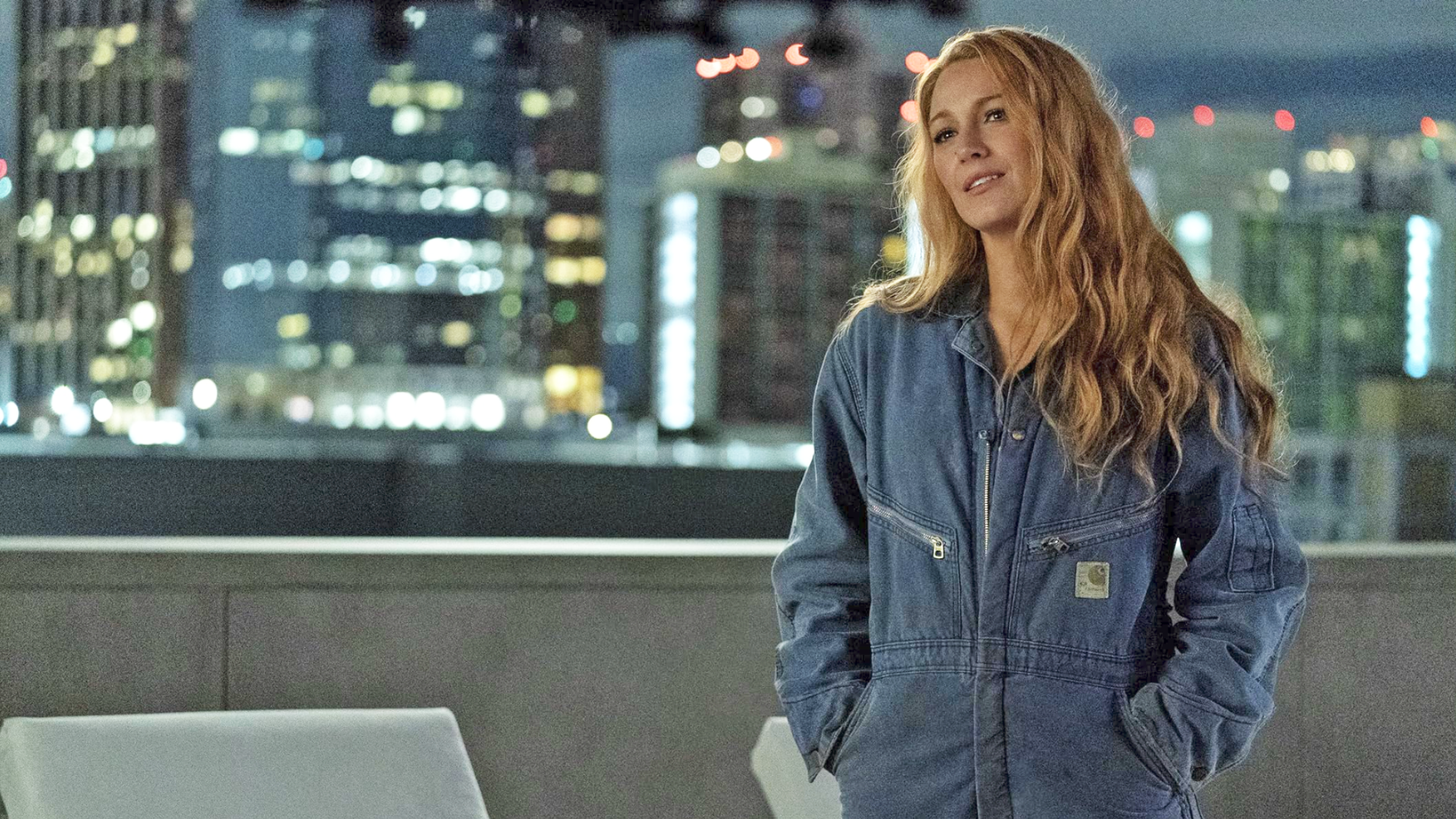It Ends With Us: a 'tough little movie' adaptation of Colleen Hoover's novel
Glossy blockbuster starring Blake Lively has divided critics with its portrayal of domestic abuse

A free daily email with the biggest news stories of the day – and the best features from TheWeek.com
You are now subscribed
Your newsletter sign-up was successful
Colleen Hoover's 2016 novel about domestic abuse, "It Ends With Us", was a "monumental success" that was translated into 20 languages, said Brian Viner in the Daily Mail.
"So now, inevitably, it's also been translated into the language of cinema, starring Blake Likely as the story's heroine Lily Bloom."
'Shallower than a toddler's paddling pool'
Bloom is a Boston florist struggling to process the death of her father, who was a pillar of his community but was also violent towards her mother.
The Week
Escape your echo chamber. Get the facts behind the news, plus analysis from multiple perspectives.

Sign up for The Week's Free Newsletters
From our morning news briefing to a weekly Good News Newsletter, get the best of The Week delivered directly to your inbox.
From our morning news briefing to a weekly Good News Newsletter, get the best of The Week delivered directly to your inbox.
One day on a Boston rooftop, Lily meets Ryle (Justin Baldoni, who also directs), "an uncommonly handsome neurosurgeon" who "slowly but surely" sweeps her off her feet. But soon, she bumps into her first love, restaurateur Atlas (Brandon Sklenar), who begins to worry that her "drop-dead-gorgeous" partner might be an abuser in the mould of her late father.
We, of course, "know better. Or do we?" There are better films about domestic abuse – this one is at times "shallower than a toddler's paddling pool" – but few are as handsome to look at.
'Almost offensively long'
"It Ends With Us" is likely to be a "summer smash", said Benjamin Lee in The Guardian. It's slick and soapy, and has been cannily marketed to woo Swifties (Lively is one of Taylor Swift's closest friends). But if you set those "cold calculations" aside, it's a "surprisingly warm and moving" drama that tells a story of abuse "that's far less obvious" than you might imagine.
"It Ends With Us" is "at times touching, often ridiculous", and at over two hours, "almost offensively long", said Manohla Dargis in The New York Times. But I wouldn't describe it as shallow. Buried under all the "gauzy romanticism" and the "luxuriously coiffed thickets" of Lively's mane is a "tough little movie about women, bad choices, worse men and decisions that doesn't fit into a tidy box".
A free daily email with the biggest news stories of the day – and the best features from TheWeek.com
-
 How the FCC’s ‘equal time’ rule works
How the FCC’s ‘equal time’ rule worksIn the Spotlight The law is at the heart of the Colbert-CBS conflict
-
 What is the endgame in the DHS shutdown?
What is the endgame in the DHS shutdown?Today’s Big Question Democrats want to rein in ICE’s immigration crackdown
-
 ‘Poor time management isn’t just an inconvenience’
‘Poor time management isn’t just an inconvenience’Instant Opinion Opinion, comment and editorials of the day
-
 Bad Bunny’s Super Bowl: A win for unity
Bad Bunny’s Super Bowl: A win for unityFeature The global superstar's halftime show was a celebration for everyone to enjoy
-
 Book reviews: ‘Bonfire of the Murdochs’ and ‘The Typewriter and the Guillotine’
Book reviews: ‘Bonfire of the Murdochs’ and ‘The Typewriter and the Guillotine’Feature New insights into the Murdoch family’s turmoil and a renowned journalist’s time in pre-World War II Paris
-
 6 exquisite homes with vast acreage
6 exquisite homes with vast acreageFeature Featuring an off-the-grid contemporary home in New Mexico and lakefront farmhouse in Massachusetts
-
 Film reviews: ‘Wuthering Heights,’ ‘Good Luck, Have Fun, Don’t Die,’ and ‘Sirat’
Film reviews: ‘Wuthering Heights,’ ‘Good Luck, Have Fun, Don’t Die,’ and ‘Sirat’Feature An inconvenient love torments a would-be couple, a gonzo time traveler seeks to save humanity from AI, and a father’s desperate search goes deeply sideways
-
 A thrilling foodie city in northern Japan
A thrilling foodie city in northern JapanThe Week Recommends The food scene here is ‘unspoilt’ and ‘fun’
-
 Tourangelle-style pork with prunes recipe
Tourangelle-style pork with prunes recipeThe Week Recommends This traditional, rustic dish is a French classic
-
 Samurai: a ‘blockbuster’ display of Japan’s legendary warriors
Samurai: a ‘blockbuster’ display of Japan’s legendary warriorsThe Week Recommends British Museum show offers a ‘scintillating journey’ through ‘a world of gore, power and artistic beauty’
-
 BMW iX3: a ‘revolution’ for the German car brand
BMW iX3: a ‘revolution’ for the German car brandThe Week Recommends The electric SUV promises a ‘great balance between ride comfort and driving fun’